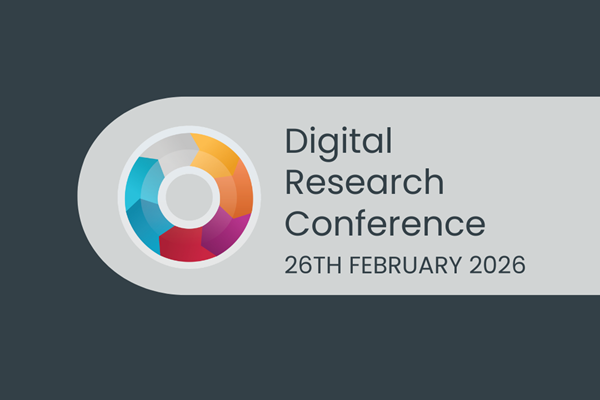Conference Organising Team
Subject line - Digital Research Conference
digitalresearchservices@ed.ac.uk
The 2026 Digital Research Conference will take place on 26th February 2026 at Edinburgh Futures Institute. It brings together University of Edinburgh researchers and professional staff engaged in digital, data-intensive, and computational research to promote best practices, inspire collaboration, and stimulate discussions across various research fields.
Attendees experience a diverse programme featuring keynote talks, interactive panels, hands-on workshops, and breakout sessions covering emerging trends, digital research skills, and innovative methodologies.

We are delighted to welcome enquiries from organisations interested in sponsoring the Digital Research Conference 2026.
If you would like to explore sponsorship opportunities, please contact the organising committee with the subject line: “Sponsorship Enquiry – Digital Research Conference 2026”.
Subject line - Digital Research Conference
digitalresearchservices@ed.ac.uk